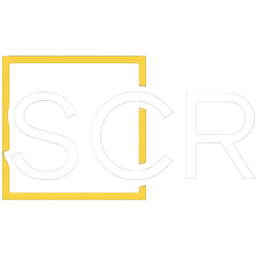
Economic substance rules are now key for offshore companies globally. Seychelles has aligned its 2025 rules with these standards. This ensures companies show real activities within Seychelles. These are the requirements you need to know if you own or intend to start a Seychelles IBC. Now the question is, what is meant by the term Seychelles economic substance? Who must comply? This article explains that clearly. It also shows how to stay compliant while operating there.
Economic substance rules require offshore companies to prove they have real business operations in their claimed location. This helps prevent tax evasion and ensures Seychelles meets important global standards set by organizations like the OECD and EU.
Economic substance rules stop companies from being just 'paper' entities in low-tax places. They make sure businesses have real operations, staff, and decision-making where they claim tax residency. This helps fight tax avoidance. It also keeps Seychelles aligned with key global standards set by the OECD and EU.
Since 2021, certain Seychelles IBCs must prove real activity locally. This is needed to keep tax breaks on foreign income. Failing to comply brings serious consequences:
Therefore, meeting Seychelles economic substance is a legal must, not just a formality.
Not all Seychelles IBCs face full economic substance requirements. The rules mainly target companies within multinational groups earning specific passive foreign income. This includes money from:
Yes. Simpler requirements apply to:
Ask yourself these questions-
Think of CIGA as essential tasks that actually earn your Seychelles IBC its money. For example:
Importantly, these must happen within Seychelles. You need proper local support: adequate staff, premises, and spending.
Simply having a mailbox or virtual office won’t cut it. Show real activity, like local staff making decisions or board meetings held there.
To comply, your company generally needs:
Pure equity holding companies have simpler requirements, mainly maintaining a registered office and agent. Other companies must demonstrate full substance based on their business activities.
Getting compliant with Seychelles' economic substance rules is simpler than it seems. Use the following convenient guidelines to create a credible local presence without jeopardising your tax advantages. The following quick-reference guideline describes the most important steps:
| Step | What to Do | Why It Matters |
|---|---|---|
| 1. Check If the Rules Apply | Check that your IBC receives non-active foreign income (e.g. dividends, royalties) and is a component of a multinational group. | Does not place undue burden where your business is exempt (e.g. active trading companies). |
| 2. Build Real Local Operations | Rent a physical office location and hire/appoint staff/directors having a location in Seychelles. Conduct meetings of the board there. | Demonstrates that your company is not a mere scrap of paper, and it engages in actual business on the ground. |
| 3. Keep Records & Work with Agent | Keep clear accounts showing local spending. Partner with your registered agent for filings. | Ensures that you can prove your adherence to audits and annually declare them to meet deadlines. |
| 4. Stay Informed | Check periodically on what the Seychelles Revenue Commission is changing. | Avoids penalties due to the swift response to changes in rules. |
So, to make it simple, here is just the breakdown of every step in simple language:
First of all, you need to make sure whether your company is a subject of the Seychelles economic substance regulations. In case yes, you will have to:
2. Build a real local presence
Establish proper operations in Seychelles:
3. Maintain proper records & work with your agent
4. Stay updated
Keep informed about Seychelles Revenue Commission updates. Preparing early avoids penalties and keeps your tax benefits safe.
Yes. While economic substance rules may seem like extra work, they also enhance your company’s credibility and reputation. Having a real presence in Seychelles can improve your relationships with banks, investors, and partners. It demonstrates the legitimacy and sound management of your company.
Offshore compliance also helps you stay out of trouble with the law and avoid fines. It also positions your company well for future regulatory changes and international cooperation. You can transform a regulatory burden into a business-strategic opportunity by adopting economic substance.
Meeting economic substance requirements in Seychelles now lies at the heart of managing offshore companies. If your IBC earns passive income within a multinational group, then IBC laws say you must show real substance locally to retain tax benefits. This means hiring actual personnel, working out of physical space and taking critical management decisions onshore.
Understanding these rules and responding to them in time will save your business and ensure compliance. Moreover, effective evidence of substance will boost the reputation of your company and provide new opportunities. These requirements will mean both legal compliance and smart business in 2025.
No. Only companies that are part of multinational groups and earn passive foreign income must comply. Active trading companies are generally exempt.
Adequate employees are full-time staff physically present in Seychelles who perform core income-generating activities relevant to the company’s business.
No. A virtual office alone is insufficient. The company must have real premises where business activities occur.
Failure to meet the deadline can earn you heavy fines, forfeit tax reliefs, and even more government pressure in the country of Seychelles.
Either in person in Seychelles or through video conference, meetings should be conducted with clear minutes and records that demonstrate active involvement and decision-making.

Seychelles Company Registration (SCR) is your trusted partner for offshore business setup in one of the world’s most respected and confidential jurisdictions, Seychelles. Our team of specialists is dedicated solely to offshore company formation, ensuring that entrepreneurs and businesses worldwide experience a smooth, compliant, and efficient incorporation process.